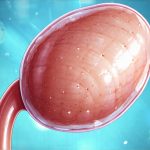Many people associate allergies with sneezing, itchy eyes, and runny noses – classic symptoms of hay fever. However, the impact of seasonal allergies can extend far beyond these common complaints. Increasingly, healthcare professionals are recognizing a connection between allergic reactions and bladder symptoms, such as urinary frequency, urgency, and even incontinence. This surprising link often goes unnoticed, leaving individuals frustrated and seeking explanations for their discomfort elsewhere. Understanding this potential relationship is crucial for accurate diagnosis and effective management of both allergy and bladder health.
The mechanisms behind this connection are complex and still being researched, but it’s believed to involve the body’s overall inflammatory response triggered by allergens. When exposed to pollen, ragweed, or other seasonal triggers, our immune system releases histamine and other chemicals as part of an effort to fight off perceived threats. This systemic inflammation isn’t limited to the respiratory system; it can affect various organs, including the bladder and pelvic floor muscles. Furthermore, some allergy medications themselves may contribute to bladder issues, adding another layer of complexity to the issue. Recognizing these subtle connections is vital for holistic patient care and a more nuanced understanding of how allergies impact overall wellbeing.
The Allergy-Bladder Connection: How it Works
The link between seasonal allergies and bladder symptoms isn’t as straightforward as a direct cause-and-effect relationship, but rather a complex interplay of physiological factors. One key component is the body’s inflammatory response. When allergens enter the system, the immune system releases histamine to combat them. Histamine doesn’t just affect nasal passages; it can increase permeability throughout the body, potentially impacting the bladder lining and leading to increased sensitivity. This heightened sensitivity can manifest as a frequent urge to urinate, even when the bladder isn’t full. Additionally, inflammation can irritate the nerves surrounding the bladder, further exacerbating these symptoms.
Another contributing factor is the impact of histamine on pelvic floor muscles. These muscles play a critical role in bladder control, and histamine can cause them to spasm or become weakened. Pelvic floor dysfunction contributes significantly to urinary incontinence, urgency, and frequency – all common complaints among allergy sufferers. The connection isn’t limited to histamine either; other inflammatory mediators released during an allergic reaction also contribute to these effects. It’s important to note that the severity of bladder symptoms can vary greatly depending on the individual, the intensity of their allergies, and pre-existing conditions.
Finally, it is crucial to consider medication side effects. Many over-the-counter and prescription allergy medications – particularly antihistamines with anticholinergic properties – can have a drying effect, leading to concentrated urine that irritates the bladder lining. Dehydration, often associated with some allergy medications, further exacerbates this issue. This creates a vicious cycle where medication intended to relieve allergies inadvertently worsens bladder symptoms. If you suspect your urinary issues might be linked to hormonal changes, it’s worth investigating whether can UTIs be triggered by hormonal pills in women?.
Identifying Allergy-Related Bladder Symptoms
Distinguishing between allergy-related bladder issues and other causes of urinary problems can be challenging, as the symptoms are similar across various conditions. However, there are key indicators that suggest an allergic connection. The timing of symptom onset is a significant clue. If bladder problems consistently flare up during peak allergy seasons (spring, summer, or fall), it strongly suggests a link. Seasonal patterns are often a telltale sign. Pay attention to whether symptoms improve when allergy medications are taken or when allergen exposure is reduced.
Common allergy-related bladder symptoms include: – Frequent urination, even at night (nocturia) – Urgent need to urinate, with little warning – Urinary incontinence (leakage) – stress, urge, or overflow incontinence – Bladder discomfort or pain – A sensation of incomplete emptying – Increased sensitivity to certain beverages (caffeine, alcohol, acidic foods)
It’s also important to consider other allergy symptoms alongside bladder issues. If you experience sneezing, itchy eyes, runny nose, and skin rashes concurrently with urinary problems, it further strengthens the suspicion of an allergic connection. It’s vital to consult a healthcare professional for proper evaluation if these symptoms persist or significantly impact your quality of life. Self-diagnosis is not recommended; a thorough medical history and examination are essential to rule out other potential causes. If you have persistent pain alongside these symptoms, it’s important to consider whether can UTI pain be triggered by bowel movements?.
Diagnosing the Connection: What to Expect
Diagnosing allergy-related bladder issues typically begins with a detailed medical history review, focusing on both allergy and urinary symptoms. Your healthcare provider will ask about your exposure to allergens, frequency and severity of allergy symptoms, any medications you’re taking (including over-the-counter remedies), and the onset and progression of your bladder problems. A physical examination may also be conducted to assess overall health and rule out other possible causes of urinary dysfunction.
Further diagnostic tests might include: – Allergy testing: Skin prick tests or blood tests can identify specific allergens triggering your symptoms. – Urinalysis: This test checks for infection, blood, or other abnormalities in the urine. – Postvoid residual (PVR) measurement: This assesses how much urine remains in the bladder after urination, helping to determine if there’s an issue with complete emptying. – Urodynamic testing: In some cases, more comprehensive urodynamic studies may be recommended to evaluate bladder function and identify any underlying issues like overactive bladder or pelvic floor dysfunction.
It’s essential to clearly communicate your symptoms and concerns to your healthcare provider. Be prepared to answer questions about the timing of symptoms, triggers, and how they impact your daily life. The more information you provide, the better equipped your doctor will be to accurately diagnose the underlying cause of your bladder problems and develop an appropriate treatment plan.
Managing Allergy-Related Bladder Symptoms
Managing allergy-related bladder issues involves a multi-faceted approach that addresses both allergies and bladder health. Proactive management is key to minimizing symptoms and improving quality of life. The first step is often allergen avoidance, which can involve staying indoors during peak pollen times, using air purifiers, and keeping windows closed. Over-the-counter or prescription allergy medications (antihistamines, decongestants, nasal corticosteroids) can help control allergic reactions and reduce inflammation. However, be mindful of the potential side effects of these medications on bladder function.
For bladder symptoms, lifestyle modifications can be highly effective. These include: – Fluid management: Staying adequately hydrated but avoiding excessive fluid intake, particularly before bedtime. – Dietary adjustments: Limiting caffeine, alcohol, and acidic foods that can irritate the bladder. – Pelvic floor exercises (Kegels): Strengthening pelvic floor muscles can improve bladder control and reduce urinary leakage. – Bladder training: Gradually increasing the time between urination to help retrain the bladder.
In some cases, medications specifically for bladder issues may be necessary. These might include antimuscarinics to reduce bladder spasms or mirabegron to relax the bladder muscle. It’s vital to work closely with your healthcare provider to determine the most appropriate treatment plan based on your individual needs and symptoms. Regular follow-up appointments are important to monitor progress and adjust treatment as needed.
The Role of Inflammation: A Holistic Approach
Understanding that allergy-related bladder issues stem from systemic inflammation is crucial for developing a holistic management strategy. Beyond addressing allergens directly, focusing on reducing overall body inflammation can have significant benefits. This includes adopting an anti-inflammatory diet rich in fruits, vegetables, and omega-3 fatty acids while limiting processed foods, sugar, and unhealthy fats. Diet plays a critical role in managing inflammatory responses.
Stress management techniques like yoga, meditation, and deep breathing exercises can also help reduce inflammation by lowering cortisol levels. Chronic stress contributes to increased inflammation throughout the body, exacerbating both allergy and bladder symptoms. Regular exercise is another powerful tool for reducing inflammation and improving overall health. Aim for at least 30 minutes of moderate-intensity exercise most days of the week.
Finally, consider exploring complementary therapies like acupuncture or herbal remedies (under the guidance of a qualified healthcare professional) that may help modulate immune function and reduce inflammation. Remember, managing allergy-related bladder issues is often about addressing the underlying inflammatory processes rather than simply treating the symptoms. A holistic approach that incorporates lifestyle modifications, dietary changes, stress management, and appropriate medical interventions can lead to significant improvements in both allergy and bladder health. If you suspect a more complex cause, it may be helpful to investigate can cystitis be caused by allergies?.





















